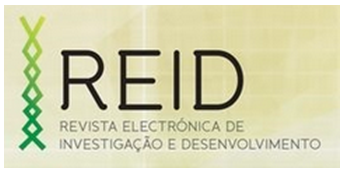UNIDADES GEOAMBIENTAIS DO NÚCLEO SÃO RAIMUNDO NONATO - PIAUÍ: MAPEAMENTO, CARACTERIZAÇÃO FÍSICA E AVALIAÇÃO ESPAÇO-TEMPORAL DA DEGRAÇÃO
Cláudia de Aquino, José de Oliveira
DOI:
https://doi.org/10.70634/reid.v1i4.39Palavras-chave:
Abordagem Integrada, indicadores biofísicos, degradação ambiental, Integrated Approach, Biophysical Indicators, Environmental DegradationResumo
O trabalho objetivou identificar unidades geoambientais no Núcleo de São Raimundo Nonato, PI, com posterior caracterização física e avaliação do risco de degradação do referido Núcleo. Para a identificação das unidades e avaliação da degradação no Núcleo foi empregada a abordagem integrada. A caracterização física permitiu constatar que as diferentes unidades ambientais naturais apresentam diferentes graus de fragilidade em razão de suas características originais. As unidades geoambientais do núcleo são: Superfície Conservada Sedimentar, Superfície Conservada Cristalina, Superfície Pediplanada, Planície Fluvial e Vales Pedimentados e Interplanálticos. Uma análise temporal da degradação da área, a partir do emprego de indicadores físicos revela que em 1987 a distribuição nas classes de degradação efetiva média e alta era de 70% e 30% respectivamente. Em 2007 a distribuição é a seguinte: 71% e 29% nas classes de média e alta degradação efetiva. Constatam-se modificações muito sutis no sentido de uma melhoria na condição do ambiente, visto um decréscimo na classe de alta degradação efetiva que em 1987 era de 30% e em 2007 passa a 29%, uma redução de 1%, daí considera-se que a área apresenta-se em uma situação de equilíbrio dinâmico. Os Vales Pedimentados e Interplanálticos, a Planície Fluvial e a Superfície Conservada Sedimentar foram às unidades que apresentaram risco alto de degradação, exigindo mais atenção posto a instabilidade ambiental das mesmas.
The work had the objective of identifying geoenviromental units in the São Raimundo Nonato Nucleus, PI, with a posterior physical characterization and risk evaluation of the degradation of the refered Nucleus. In order to identify the units and evaluate the degradation in the Nucleus, an integrated approach was utilized. The physical characterization allowed to evidence that the different environmental natural units present different degrees of fragility due to its original characteristics. The geoenvironmental units of the Nucleus are: Conserved Sedimentary Surface, Conserved Crystalline Surface, Pediplanned Surface, Fluvial Plain and Uplandish and Pedimented Valleys. A temporal analysis of the degradated area, from the employment of physical indicators reveals that in 1987, the distribution in classes of effective average and high degradation were 70% and 30%, respectively. In 2007, the distribution was as follows: 71% and 29% in classes of average and high effective degradation. It was found very subtle modifications in the sense of a better condition of the environment due to a decrease in the class of high effective degradation that in 1987 was of 30% and in 2007 surpass 29%, a reduction of 1% thence we consider that the area presents itself in a situation of dynamics equilibrium. The Pedimented and Uplandish Valleys, The Fluvial Plain and The Conserved Sedimentary Surface were the units that presented a high risk of degradation, requiring more attention due to their geoenvironmental instability.

